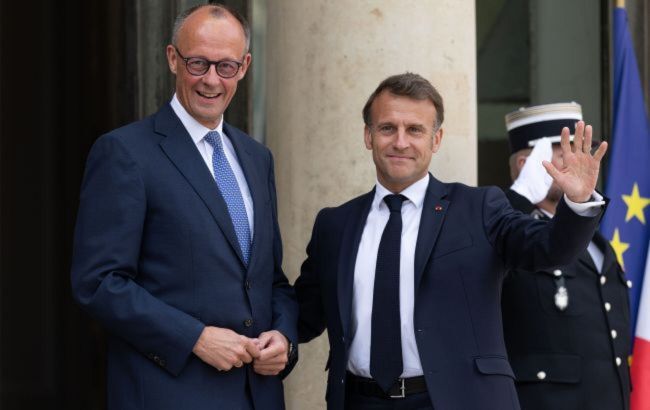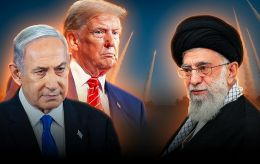EU to discuss trade policy toward China - Bloomberg
 Illustrative photo: German chancellor Friedrich Merz and French president Emmanuel Macron (Getty Images)
Illustrative photo: German chancellor Friedrich Merz and French president Emmanuel Macron (Getty Images)
Germany and France support holding discussions on trade policy toward China at the upcoming European Union summit, according to Bloomberg.
Germany and France have advocated for the inclusion of restrictive trade measures toward China on the agenda of the upcoming European Council meeting in Brussels on Thursday, October 23.
France and Poland proposed adding a sentence to the meeting’s conclusions addressing harmful economic actions by China.
Meanwhile, Germany is prepared to discuss deploying the bloc’s most powerful trade-response tool, the so-called anti-coercion instrument. This mechanism is designed to target countries that use trade or economic measures to pressure the EU into policy changes. It could allow the EU to restrict access to its market, curb foreign investment or services, limit intellectual-property rights, and block state procurement.
A German official said it is "time to talk" about using the anti-coercion instrument, but warned Berlin remains hesitant to activate it due to economic impact concerns. Still, Chancellor Friedrich Merz has not ruled it out, a departure from his predecessors, as Germany’s economy faces headwinds.
France and Poland are pushing for a more robust response to China’s trade practices. A senior EU official said France wants the bloc to explore all response options, while Poland raised concerns that China’s recent restrictions on critical minerals production could throttle clean-tech and defence industries in Europe, just as the EU accelerates rearmament in response to Russian aggression.
China & minerals
The United States and Australia signed an agreement to increase the supply of rare-earth and critical minerals.
The deal will support projects worth $8.5 billion ( £6.3 billion ) that are already ready for implementation and will help expand both countries’ capabilities in mining and processing these resources.
China controls about 70 percent of global rare-earth metal production and 90 percent of processing.
American companies remain heavily dependent on these materials.
In June, Beijing resumed exports of rare-earth minerals and magnets to the United States after talks between the two countries on a new trade agreement.
On October 10, US President Donald Trump criticized China, saying that Beijing had been sending letters to countries around the world declaring its intention to impose export controls on all production elements related to rare-earth metals.

